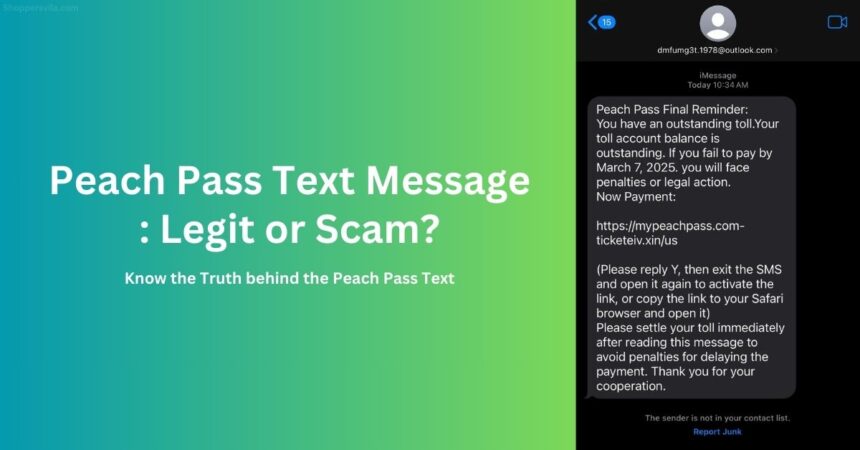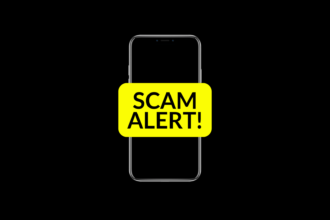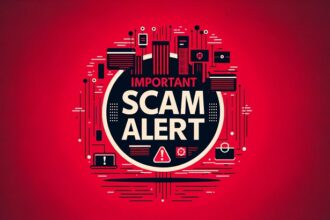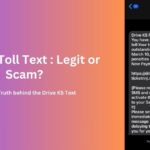The Georgia Department of Transportation and FBI are warning residents about an increasingly sophisticated text messaging scam targeting Peach Pass users and other drivers across multiple states. With thousands of complaints already filed, this fraudulent scheme is putting drivers’ personal and financial information at risk. Here’s what you need to know to protect yourself.
A Growing Wave of Deception
A surge of fraudulent text messages claiming to be from Georgia’s Peach Pass toll system has swept across the state in recent weeks, prompting officials to issue urgent warnings to motorists. The scam, which has already affected thousands of drivers, operates by sending text messages that claim recipients have unpaid toll balances that require immediate attention.
“We’ve noticed an alarming increase in reports from confused customers receiving these fraudulent messages,” said a spokesperson for the Georgia Department of Transportation. “The FBI’s Internet Crime Complaint Center has received over 2,000 complaints since March about these fraudulent texts.”
What makes this scam particularly concerning is its widespread nature. Reports indicate similar messages are appearing in at least three states, with scammers simply changing the toll service name to target different regions. The texts follow a nearly identical format, typically claiming an outstanding toll amount around $12.51 and threatening a late fee of $50 if not paid promptly.
Even more disturbing is that many recipients report never having used toll roads or Peach Pass services, indicating the scammers are casting a wide net rather than targeting actual toll users. Social media platforms like Reddit are filled with users sharing their experiences, confirming the prevalence of the scam.
Peach Pass Text Message Scam: How It Works
The scam operates through a carefully crafted text message designed to create a sense of urgency. Recipients are told they have an unpaid toll and will face penalties or legal action if they don’t pay immediately. The message includes a link to a fraudulent website that mimics the legitimate Peach Pass website.
A typical fraudulent message reads: “Peach Pass Final Reminder: You have an outstanding toll. Your toll account balance is outstanding. If you fail to pay by [date], you will face penalties or legal action.”
The most concerning aspect of these messages is the unusual instructions that accompany them. Many versions instruct recipients to “reply Y, then exit the SMS and open it again to activate the link.” According to cybersecurity experts, these bizarre instructions are designed to trigger malware downloads that can compromise the victim’s device.
“These instructions are a red flag,” explains cybersecurity expert Jane Chen. “What they’re really doing is getting you to execute actions that allow malicious code to be installed on your device, potentially giving scammers access to your personal information, passwords, and even banking details.”
The fraudulent links often have several telltale signs of being fake:
- They use domains that end in unusual extensions like “.xin” (a Chinese domain)
- They incorporate the legitimate service name (like “mypeachpass”) but add extra words or hyphens
- They often come from suspicious email addresses or international phone numbers
Red Flags to Watch For
Knowing how to identify these scam messages can help you avoid becoming a victim. Here are the key warning signs to look for:
Suspicious URLs: Legitimate Peach Pass communications will only direct you to peachpass.com. Any variation like “mypeachpass” or domains ending in unusual extensions (.xin, .ru, etc.) are fraudulent.
Unusual Sender Information: The texts often come from strange email addresses (like [email protected]) or international phone numbers from countries like the UK or Philippines.
Strange Instructions: Any message asking you to reply with a letter and then close and reopen the message is suspicious. Legitimate businesses don’t require such unusual steps.
Lack of Specific Information: Scam messages typically don’t include specific details about your alleged violation, such as the date, location, or vehicle information.
Urgent Threats: Messages threatening immediate legal action or severe penalties are designed to create panic and prompt hasty decisions.
Receiving Messages for Services You Don’t Use: Many victims report receiving these scam texts despite never having used toll roads or Peach Pass services.
A bank fraud specialist who commented on a social media thread about these scams noted, “We see these all day at the bank. The scammers are casting a wide net, hoping that even a small percentage of recipients will panic and click the link.”
What To Do If You Receive a Suspicious Text
If you receive a text message claiming to be from Peach Pass about an unpaid toll, take these steps to protect yourself:
Do Not Click Any Links: This is the most important step. Never click on links in unexpected text messages, even if they appear legitimate.
Do Not Reply: Responding to the message in any way can confirm to scammers that your number is active, potentially leading to more scam attempts.
Report the Scam: File a complaint with the FBI’s Internet Crime Complaint Center (IC3) at www.ic3.gov. Include the phone number the text came from and the website listed in the message.
Verify Through Official Channels: If you’re concerned about a potential toll violation:
- Log into the official Peach Pass website directly through your browser (www.peachpass.com)
- Check your account using your license plate number
- Use the official Peach Pass mobile app
- Call the official Peach Pass customer service number (1-855-724-7277)
Document the Message: Take a screenshot of the text before deleting it, which can be useful if you need to report it.
Delete the Message: Once you’ve reported it and verified your account status through legitimate channels, delete the message.
How to Protect Yourself from Future Scams
Taking proactive measures can help prevent you from becoming a victim of these and similar scams:
Stay Informed: Follow official Peach Pass social media accounts and visit their website periodically for updates about scams and legitimate communication methods.
Know the Official Channels: Remember that Peach Pass typically communicates through:
- Email (for account holders)
- Physical mail for toll violations
- Their official app and website
Enable Two-Factor Authentication: For any online accounts, including your Peach Pass account, enable two-factor authentication for an added layer of security.
Use Official Apps: Download the official Peach Pass app from the Apple App Store or Google Play Store to manage your account securely.
Be Skeptical of Unsolicited Communications: Approach any unexpected message claiming to be from a toll service with healthy skepticism, especially if it creates a sense of urgency.
Keep Your Phone Updated: Ensure your mobile device has the latest security updates and consider installing anti-malware software.
If You’ve Already Clicked: What To Do
If you’ve already clicked a link or provided information in response to one of these scam messages, take these immediate steps:
Change Your Passwords: Immediately change passwords for any accounts that might be compromised, especially your email, banking, and Peach Pass accounts.
Monitor Your Accounts: Carefully review your financial statements and credit card bills for any unauthorized charges.
Contact Your Bank: Alert your financial institutions about the potential compromise and consider placing a fraud alert.
Check Your Credit Reports: Monitor your credit reports for any suspicious activity through annualcreditreport.com.
Consider Identity Theft Protection: Services that monitor your personal information for suspicious activity can provide an extra layer of security.
Run Security Scans: Use reputable antivirus and anti-malware software to scan your device for any malicious programs that might have been installed.
The Broader Threat Landscape
The Peach Pass scam is part of a larger trend of “smishing” (SMS phishing) attacks targeting consumers across the country. Similar scams impersonating other toll services like Florida’s SunPass, California’s FasTrak, and various E-ZPass systems have been reported nationwide.
“What we’re seeing is a sophisticated, coordinated effort to target drivers across multiple states,” says Tom Williams, a cybersecurity analyst. “The scammers are adapting their techniques to impersonate different regional toll systems while maintaining the same basic approach.”
Law enforcement agencies and toll authorities are working together to combat these scams, but the constantly changing phone numbers and domains make it challenging to shut down all sources of the fraudulent messages.
The most effective defense remains consumer awareness. By knowing how to identify these scams and taking proper precautions when receiving unsolicited messages, drivers can protect themselves from becoming victims.
Remember that legitimate toll authorities like Peach Pass will never request payment through text message links or ask you to follow unusual instructions to access payment portals. When in doubt, contact Peach Pass directly through their official website or customer service number to verify any communications you receive.









































